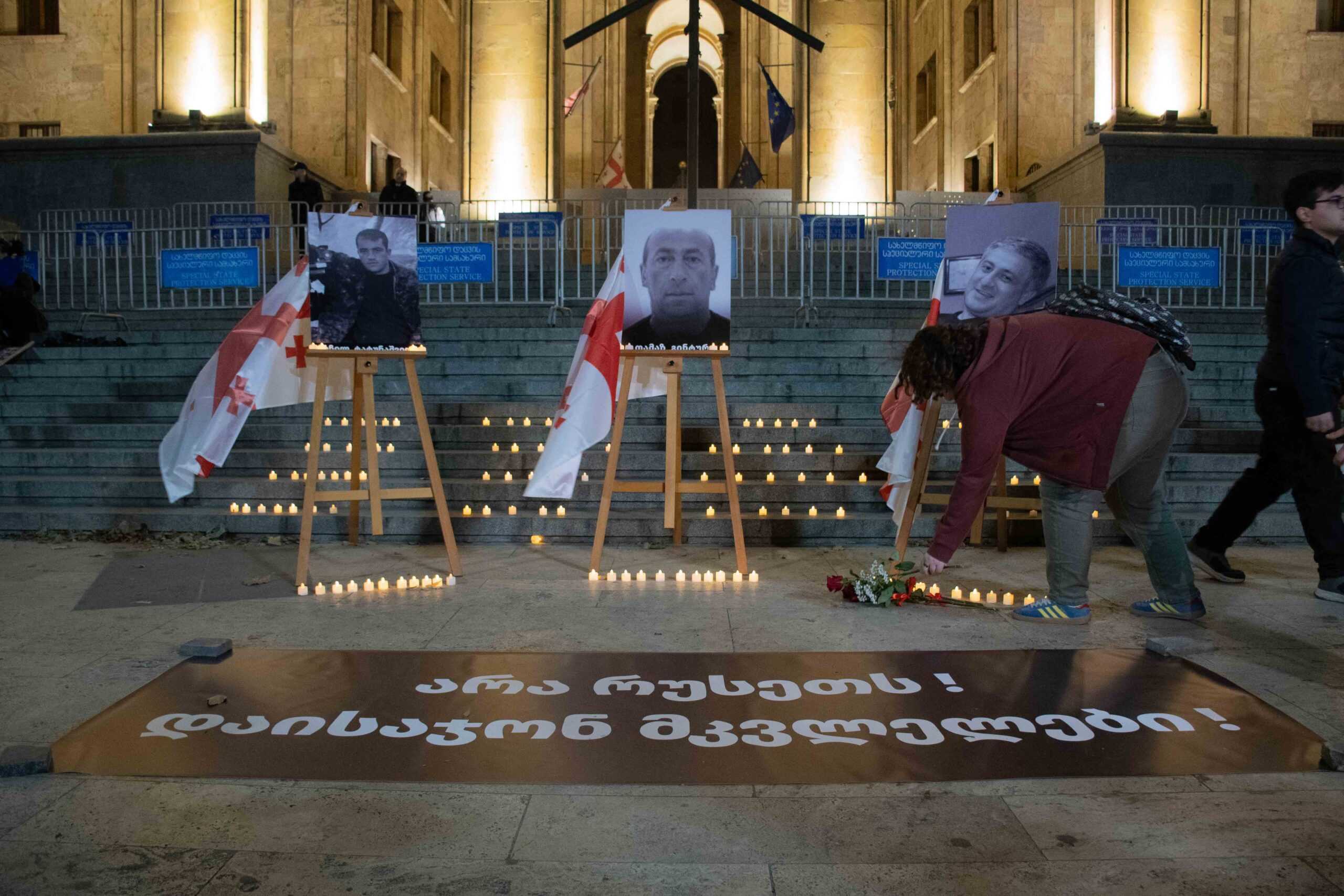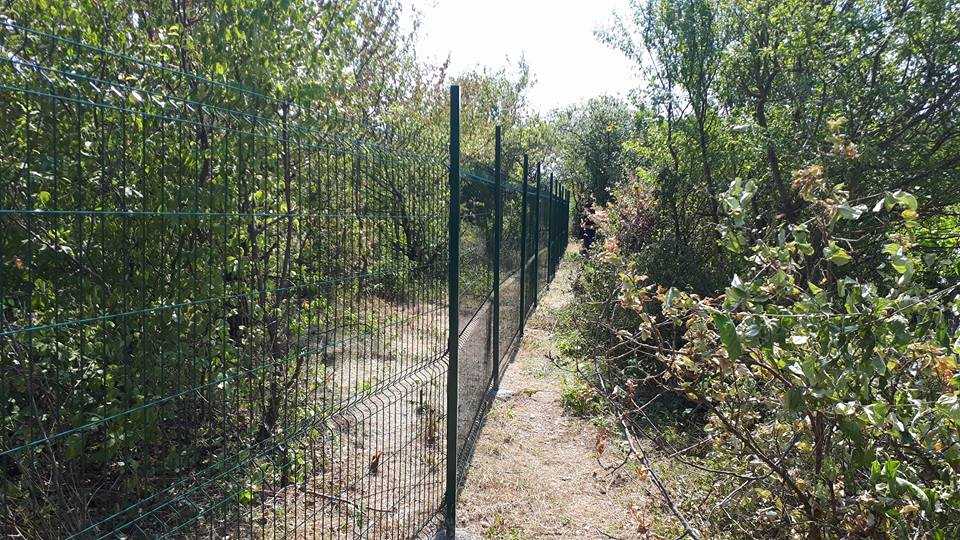
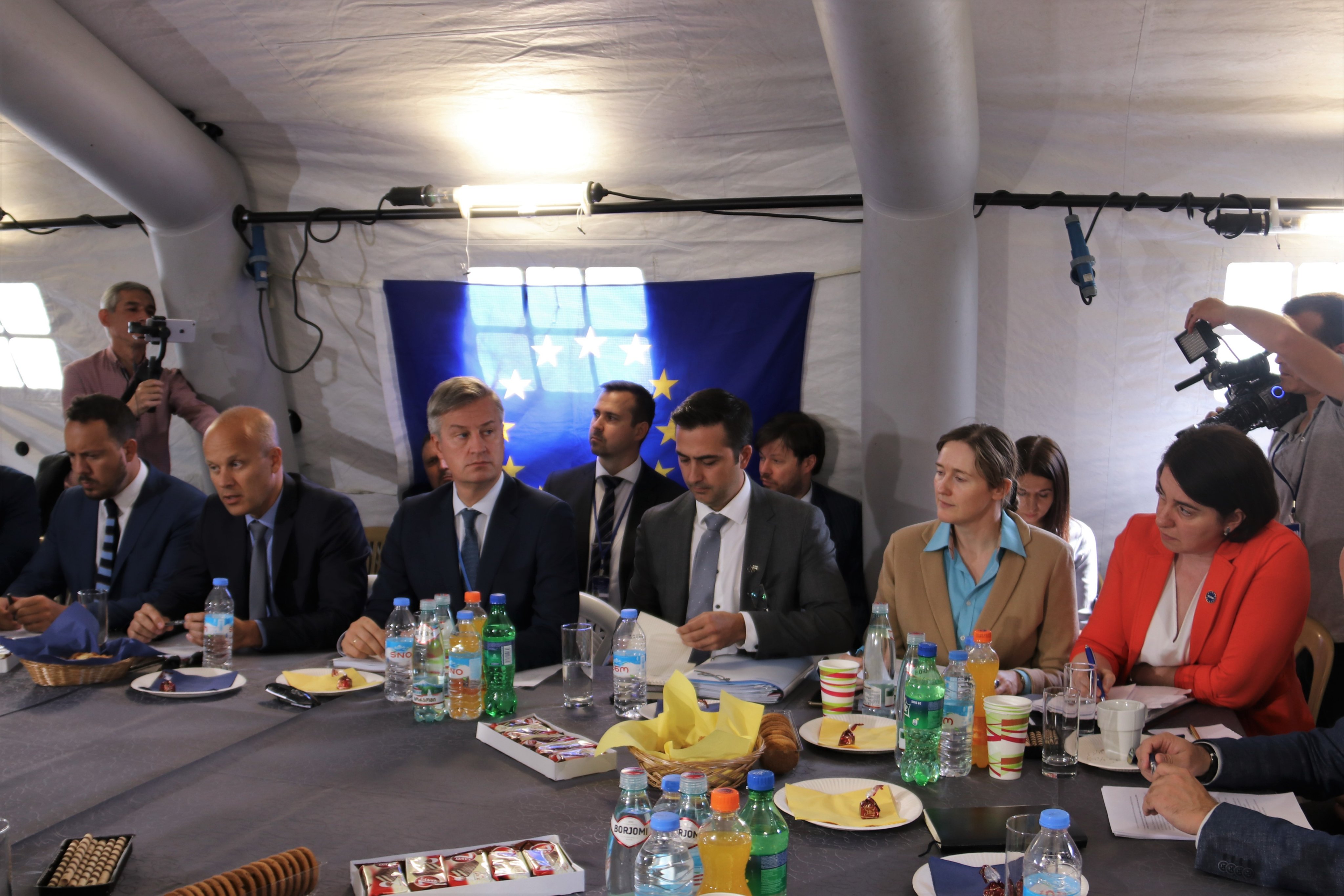
A heated meeting between Georgian and South Ossetian officials has ended without results after Georgian police set up a new police checkpoint near the border. The meeting came at a time of increased tension following the erection by Russian troops of new fences along the disputed South Ossetian border.
On 27 August, South Ossetia’s State Security Committee (KGB) accused Georgian police of erecting a new police checkpoint near the village of Tsnelisi (Uista).
Tsnelisi is almost entirely controlled by South Ossetian forces and is separated from the Georgian government-controlled village of Chorchana by a forested buffer zone.
The KGB said that Georgia had cut down parts of the forest leading to Tsnelisi and erected the checkpoint in its place.
They said their border police had inspected the villages of Tsnelisi and Gvirgvina (Khuymta) under the instruction of President Anatoly Bibilov, who had visited the village, in order to ‘ensure the safety of local population’ and minimise risks of incidents near the border.
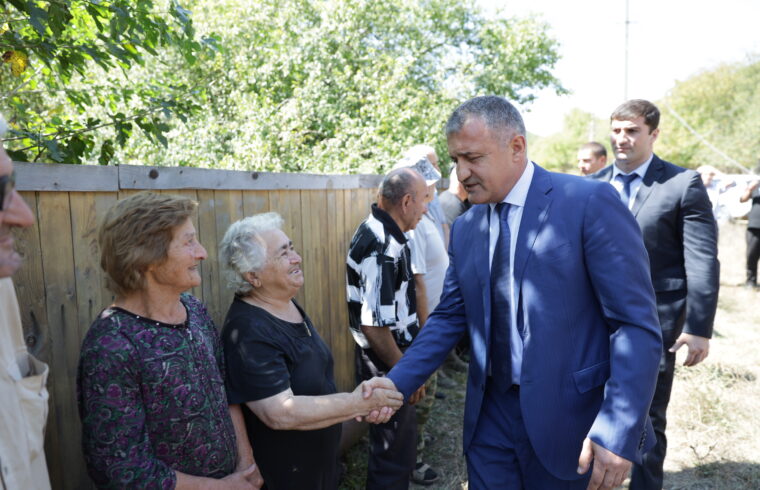
The KGB also claimed that Georgian forces were preparing police installations in another location — near the village of Sinaguri (Sinagur) in South Ossetia’s Java (Dzau) District.
On Wednesday, Georgia’s State Security Service (SSG) accused South Ossetian authorities of carrying out a ‘provocative’ mobilisation of armoured vehicles near Chorchana, Imedi reported.
Zviad Zviadadze, a spokesperson for Georgia’s Ministry for Reconciliation, confirmed to the Georgian Public Broadcaster a day later that the police checkpoint had been set up, but insisted that Georgia had every right to do so.
On 28 August, the South Ossetian Foreign Ministry called on the EUMM and the Co-Chairs of the Geneva International Discussion to pressure Georgia to stop their ‘deliberate and demonstrative escalation of the situation in the border areas’.
The Geneva International Discussions is an international discussion format launched in October 2008 to address the consequences of the conflict. It is co-chaired by the EU, OSCE, and UN.
A ‘thwarted’ meeting
Following the escalation of tensions, Georgian and South Ossetian officials traded accusations on Thursday at the 95th Incident Prevention and Response Mechanism meeting (IPRM).
According to the OSCE, who co-chair the IPRM, the meeting ended prematurely after it was ‘disrupted’. InterPressNews quoted Georgian State Security Service official Irakli Antadze as saying that the meeting was ‘thwarted’ by South Ossetian officials, who demanded Georgia stop building the checkpoint.
As the meeting was underway, South Ossetian authorities announced that they had mobilised additional forces to fortify the border near Tsnelisi.
The IPRM meetings between the Georgian and Abkhazian authorities and Russia in Gali (Gal), Abkhazia are chaired by the UN while talks between Georgian and South Ossetian authorities and Russia in Ergneti are co-facilitated by the OSCE and the EUMM.
The format was set up after the August 2008 war. Meetings with South Ossetians are regularly held in the Georgian-controlled village of Ergneti near the South Ossetian capital Tskhinvali (Tskhinval).
Before the meeting on Thursday, Toivo Klaar, the EU’s Special Representative for the South Caucasus and the crisis in Georgia tweeted that he was ‘very concerned’ about the situation.
Very concerned about developments around Tsnelisi village and Chorchana forest. Important that today’s #IPRM is made full use of.
— Toivo Klaar (@ToivoKlaar) August 29, 2019
‘Incorrectly demarcated’
Tensions around the Georgian-controlled village of Chorchana, which is home to 16 families, have increased over the past year.
In March, residents of Chorchana complained that their agricultural lands were being divided by an ‘occupation line’, while also protesting the absence of a school, kindergarten, and a hospital in the village.
In January, unarmed Georgian vigilante group Power in Unity, which carries out patrols of the South Ossetian border, claimed that the ‘occupation forces of Russia’ had restricted Georgians from using the forest near Chorchana and had started preparations to erect fences there.
The SSG included the issue in February’s IPRM meeting.
In the summer of 2018, South Ossetia’s parliament formed a commission to examine the ‘incorrectly’ demarcated border in the area. They claimed a part of the Tsnelisi Gorge currently under Georgian Government control belonged to South Ossetia. The area includes talc deposits.
‘Borderisation’ and detentions
The SSG’s Antadze told journalists before Thursday’s IPRM meeting that they planned to raise a number of other issues.
These included the ‘illegal detention’ of Georgians along the dividing line, and the ongoing demolition of houses in Eredvi, where ethnic Georgians resided before the August 2008 war.
The Georgian authorities claimed that the South Ossetian authorities planned to use Eredvi (Yered) as a landfill.
Antadze sad that ‘illegal borderisation’, including the latest case near the village of Gugutiantkari, were also among the issues to be discussed.
Earlier in August, the Russian military set up several hundred metres of fences, cutting off two families of ethnic Georgians in Gugutiantkari, in Gori Municipality, from their property.
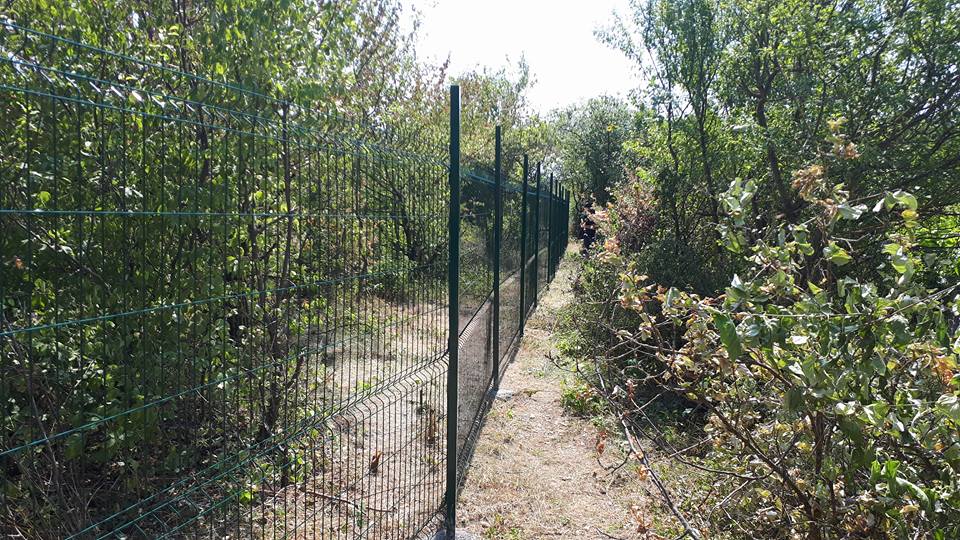
[Read more on OC Media: New ‘borderisation’ in South Ossetia cuts off property of two Georgian families]
On Wednesday, the Geneva Discussions co-chairs released a statement after visiting the area saying that the newly erected installations in Gugutiantkari had worsened the situation for local residents. They said the installations had impeded their freedom of movement and ‘prevented them from reaching their orchards and threaten access to irrigation water’.
For ease of reading, we choose not to use qualifiers such as ‘de facto’, ‘unrecognised’, or ‘partially recognised’ when discussing institutions or political positions within Abkhazia, Nagorno-Karabakh, and South Ossetia. This does not imply a position on their status.




